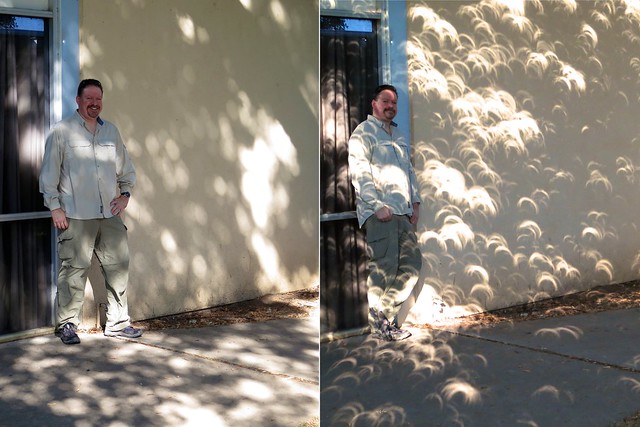I expressed my misgivings about the AP Physics 1 and AP Physics 2 exams
in a previous post. Once again, this is a rant. If you're not into rants, kindly scroll to the next post.
The purpose of this post is simply to show the global exam score distributions, three years into the redesign. I used the numbers posted by
Total Registration.
First up: the final three years of the AP Physics B exam scores. Fives were earned by 15% of students, fours were earned by 19%, threes by 27%, twos by 17%, and ones by 22%. (Approximately
one third succeeded with 4s and 5s.)
Next up: the first years of the AP Physics 1 exam. Fives were earned by 4% of students, fours were earned by 14%, threes by 21%, twos by 30%, and ones by 31%. (Approximately
one fifth of candidates succeeded.)
Try not to judge too harshly those who have lost enthusiasm for algebra-based AP Physics.
To complete the Algebra-based exams, consider the AP Physics 2 exam. Fives were earned by 9% of students, fours were earned by 15%, threes by 34%, twos by 32%, and ones by 9%.
The College Board hastens to offer explanations for the precipitous plummet, especially in regard to AP1. The AP2 scores actually match the legacy APB results reasonably well. There's reason to speculate that many (if not most) AP2 examinees are successful veterans of the AP1 exam.
1. Teachers aren't teaching the new course correctly. They haven't undergone enough in-service retraining. (This is part of the admission that the AP1 and AP2 exams aren't really about physics anymore, but about Big Ideas. Physics topics are merely the canvas upon which the Big Ideas are painted.)
2. Too many students are taking the AP1 exam. This is where I'm trying to help. And you can, too. I assure my students that I will do my best to prepare them for the exams as they are. But I encourage them to not submit to the exam. This reverses a position I held for 25 years. If we work together, we can help to reduce the glut of AP1 examinees.
The Physics team at the College Board has replaced the muscular Camaro that was AP Physics B with shiny Lamborghinis called AP Physics 1 and AP Physics 2. Emulating the college course that examinees could test out of is now a long-abandoned goal. The new courses hope to be the richest, most immersive physics courses that could be imagined.
I don't find the course syllabi to be particularly practical for high school students. The courses go well beyond virtually all introductory college and university courses. The AP Physics B exam was more demanding than those administered at the college level. And the AP1 and AP2 exams amplify that disparity to 11.
Surely this escalation of difficulty of the AP1 and AP2 exams must have resulted in a global advancement of the way colleges and universities accept and interpret passing scores. If it has, I am unaware of it. In the old days of AP Physics B, college acceptance of passing scores was a crazy patchwork. To the best of my knowledge, the crazy patchwork remains unchanged even with the more stringent AP1 and AP2 exams.
You might wonder why AP Physics C instructors remain enthusiastic about their course and exam. They were unaffected by the AP Physics B redesign. Let's bring them into the mix.
While the AP1 and AP2 scores plummeted, the un-redesigned AP C Mechanics exam scores continued to flourish. Over the past three years, fives were earned by 31% of students, fours were earned by 28%, threes by 18%, twos by 13%, and ones by 10%. (Nearly 60% success rate.)
The score of 5 (highly qualified) now represents the mode.
The un-redesigned AP C Electricity and Magnetism exam scores did well, too. Over the past three years, fives were earned by 30% of students, fours were earned by 24%, threes by 14%, twos by 19%, and ones by 13%. (More than half succeed.)
The score of 5 (highly qualified) continues to represent the mode.
AP Physics C continues to be a physics content-based exam. That is, its blueprint refers to topics in physics instead of the more philosophical Big Ideas that form the core objectives of AP1 and AP2. This may well be a key to the continuing success enjoyed AP C examinees.
Of course there's more to this discussion. I'm obviously ventilating a bit here because this continues to be a source of frustration. AP Physics C is not a viable option at my school due primarily to its prerequisites. Intra- and inter- district competition for school enrollment prevents me from simply abandoning AP1 and AP2. If not for that, I would.
With haste.





























